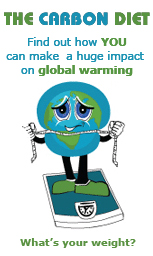Ask Ronit
 I Like Your Ponytail, A Story About Commitment
I Like Your Ponytail, A Story About Commitment
“I like your ponytail.” I said in a playful manner. “Ponytail?” he repeated in a thick French accent. There and then began the most extraordinary odyssey of my life.…
Avoid 90% of the Pesticides in Food, by Avoiding 12 Foods
Why should you care about pesticides in your food?For starters there may be as many as twenty pesticides on a single piece of fruit you eat.…
Dear Mrs. Black,It was January 1967 when this 11 year-old, frightened, little Israeli girl walked into your classroom for the first time. I had only arrived in the country two weeks before.…
With sex all around us, oozing out of our televisions, theaters, magazines, fashion, on the streets, one would think we are the most sexually informed, open and comfortable nation on the planet.”…
I’m sure by now you all have noticed the ongoing meltdown in the mortgage industry. The cause of this whole mess is a little bit complicated, rooted in both the structure of the mortgage industry, and human nature. I’ll try to explain both factors here in layman’s terms.…
Breaking old habits; Creating new Ones
We are mostly habitual beings. Webster defines habit as an acquired mode of behavior that has become nearly or completely involuntary.…
Navigation
No Part Of Oceans Untouched
The oceans cover 70% of the earth's surface and researchers have found that no portion have been free from the power of human influence.
Researchers overlaid several different factors including several types of human pollution, fishing, oil rigs, shipping, and species invasion to create a map showing the impact of human activities on the oceans and the degree. They found the hots spots to include the Caribbean, East Coast of North America, European Coast, the Mediterranean, and the East and South China Seas. The few areas of low impact are small and far between. The largest of these being the areas around the poles which could be affected most by current climate change trends.
The study was funded by the National Center for Ecological Analysis and Synthesis, the National Science Foundation and the David and Lucille Packard Foundation.
See the map and read about the original study at Science/AAS

 My Hero
My Hero We Are Sexual Beings
We Are Sexual Beings The Banking Implosion
The Banking Implosion















beats by dre beats by dre outlet http://bizloans101.com
Post new comment